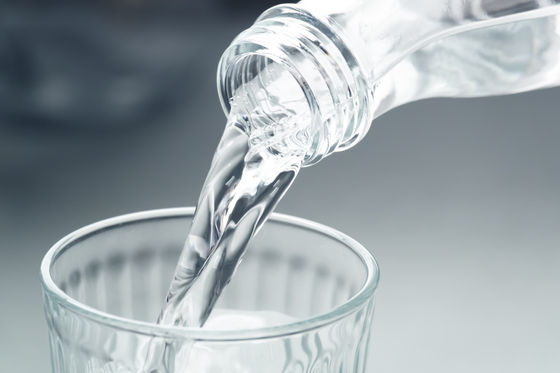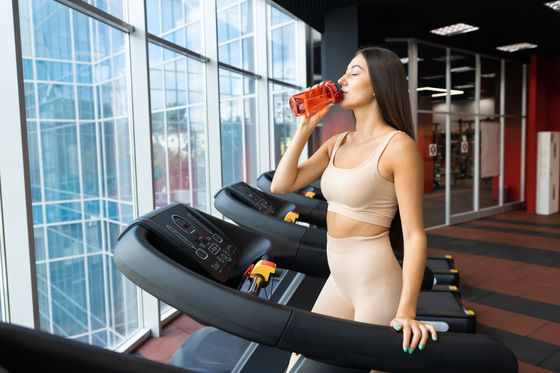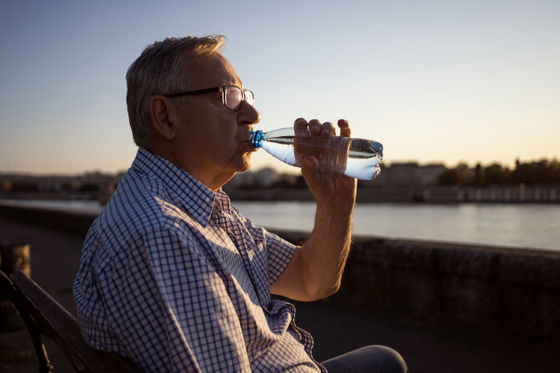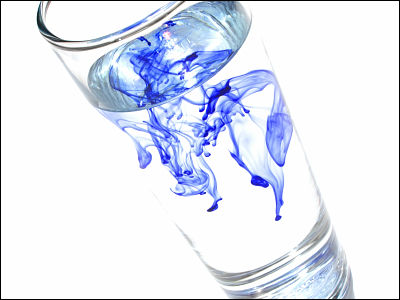Is it true that drinking a lot of water will help you lose weight? Experts explain common misconceptions about the 'water diet'

As
Weight loss: drinking a gallon of water a day probably won't help you lose weight
https://theconversation.com/weight-loss-drinking-a-gallon-of-water-a-day-probably-wont-help-you-lose-weight-211311
It is often said that if you want to lose weight, you should drink a lot of water every day, and there is even advice on the Internet that you should drink as much as 1 gallon (about 4.5 liters) a day.
Meanwhile, Duane Mellor, a clinical nutritionist at Aston Medical School in the UK, says there is little scientific evidence for some claims about water diets, saying the main misconceptions are that 'burning calories' and 'overeating'. We explained two points regarding prevention.

◆Myth 1: Water helps burn calories
A small
This may seem like a remarkable effect, but the effect actually only lasted for an hour. Therefore, even if a person weighing 70 kg drinks 500 ml of water, only 20 kcal, equivalent to one quarter of a biscuit, will be consumed. Another experiment involving eight young people found that drinking water that had been chilled in the refrigerator only increased energy expenditure, and the increase was only 4%.
As for why you use more energy when you drink cold water, Mellor says, ``Either your body uses more energy to bring the water back to body temperature, or your kidneys need more energy to filter the increased fluid.'' I guess it's either that or something.'
As you can see, drinking water does burn energy, but the effect is minimal, and even if you drink an extra 1.5 liters of water a day, you will only burn less calories than one slice of bread. Mellor also said that all of the above studies focused on healthy young people, so further research is needed to see how it works in other groups, such as middle-aged and elderly people.

◆Myth 2: Drinking water during meals will suppress your appetite and help you lose weight.
There seems to be some truth to the explanation that if there is water in your stomach, there is less space for food, so you can eat less. In fact,
Mellor said people who are unwell or have a poor appetite may be advised not to drink alcohol before meals. This is because if you drink alcohol before a meal, you may end up eating too little, leading to nutritional deficiencies.
However, its effects on people who have excessive appetite are unknown. For example, in a study in which young and elderly people were asked to drink 500 ml of water 30 minutes before meals, older adults aged 60 to 80 who drank water before meals lost 2 kg over 12 weeks; A 35-year-old young man did not lose weight even after drinking water.
In fact, this study was not blinded to the participants, so it is possible that the participants realized why they were drinking water. In this case, it cannot be ruled out that the participants may have reduced the amount they ate in order to meet the researchers' expectations.
Additionally, many studies on water and food often only look at one meal per day, so there is little research that provides high-quality evidence that drinking water can suppress appetite. From this, Mellor said, ``Water may have the effect of reducing appetite, but it does not seem to lead to long-term changes in weight.''

◆Other useful information about water and appetite
According to Mellor, people feel full because their stomach swells with food, stimulating stretch receptors and secreting hormones that indicate fullness.
However, since water is a liquid, it is quickly excreted from the stomach and does not lead to a feeling of fullness. More importantly, the stomach has the ability to bypass semi-solid food being digested and allow water to pass through, so if you drink water during or after a meal, it ends up being immediately emptied from the stomach. Mellor said it doesn't help you feel fuller longer.
Drinking too much water alone may not help you eat less or lose weight, but mixing other substances with your water, such as fiber , or consuming fluids in the form of vegetable soups can help empty your stomach. Research has shown that it slows down the feeling of satiety and keeps you feeling full for a longer period of time.
Mellor concludes by saying, ``Water may not directly help you lose weight, but it is the healthiest drink we can choose, so it can help you lose weight.'' If you replace calorie drinks with water, you can easily reduce your daily calorie intake, which will also help you lose weight.'
Related Posts:







